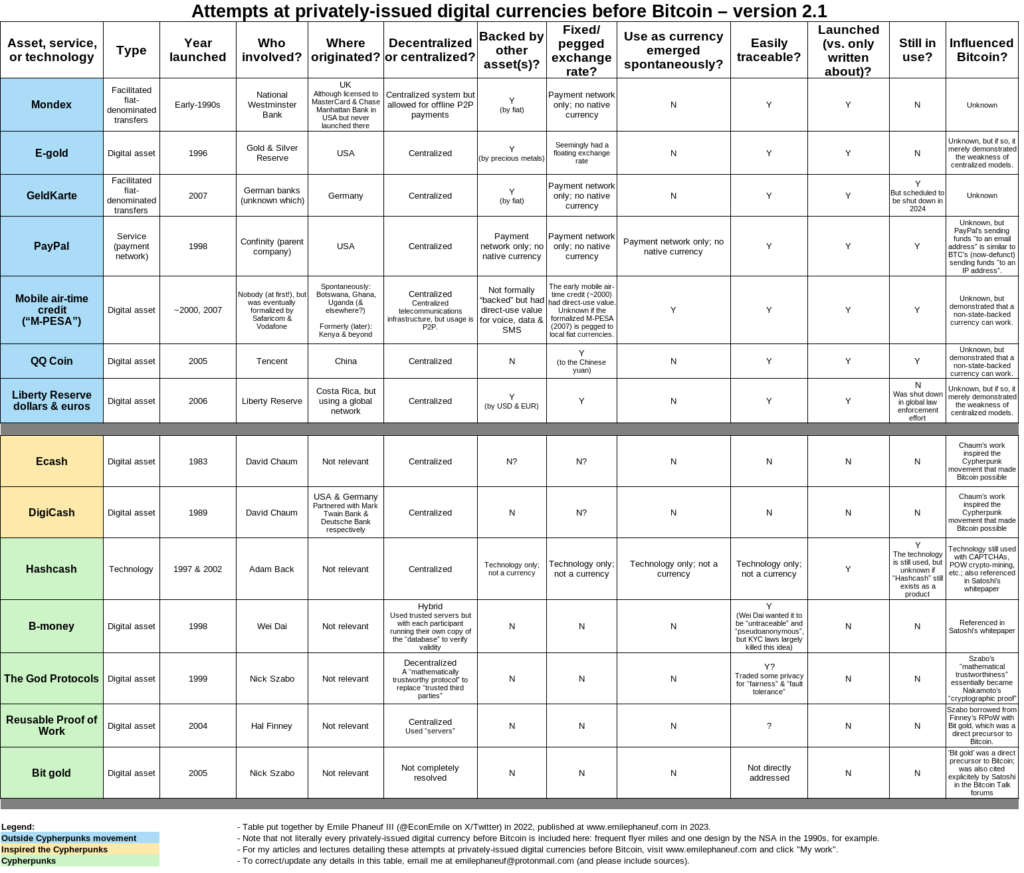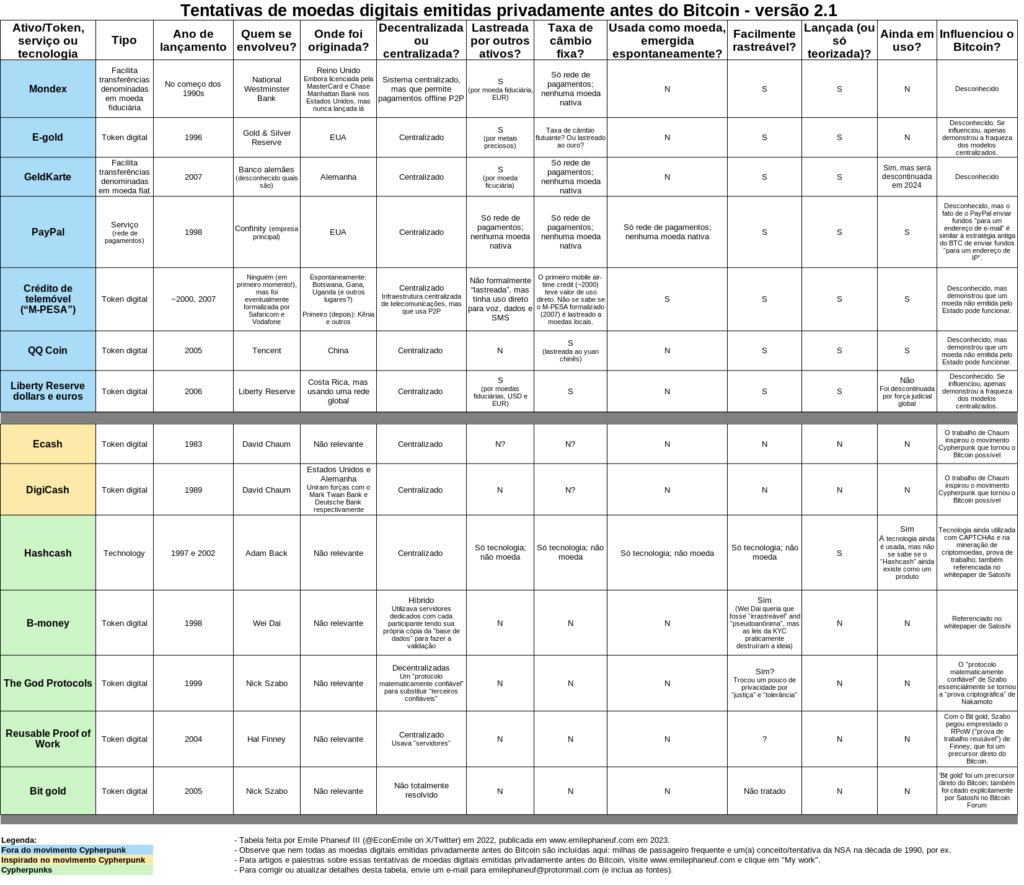| # |
English |
Português |
Español |
| 1 |
acid rain |
chuva ácida |
lluvia ácida |
| 2 |
airspace |
espaço aéreo |
espacio aéreo |
| 3 |
Al-Qaeda |
Al-Qaeda |
Al-Qaeda |
| 4 |
Amnesty International |
Anistia Internacional |
Amnistía Internacional |
| 5 |
anarchy |
anarquia |
anarquía |
| 6 |
Antarctic Treaty (1959) |
Tratado da Antártida |
Tratado Antártico |
| 7 |
arms race |
corrida armamentista |
carrera armamentista |
| 8 |
autarky (self-reliance) |
autarquia |
autarquía |
| 9 |
authoritarian(ism) (government) |
autoritarismo |
autoritarismo |
| 10 |
balance of payments |
balanço de pagamentos |
balanza de pagos |
| 11 |
balance of power |
equilíbrio de poder |
equilibrio de poder |
| 12 |
balance of trade |
balança comercial |
balanza comercial |
| 13 |
ballistic missiles |
míssil balístico |
misil balístico |
| 14 |
bargaining |
negociação |
regateo |
| 15 |
basic human needs |
necessidades básicas do ser humano |
necesidades básicas del ser humano |
| 16 |
bilateral aid |
ajuda bilateral |
ayuda bilateral |
| 17 |
biodiversity |
biodiversidade |
biodiversidad |
| 18 |
Biological Weapons Convention (1972) |
Convenção sobre Armas Biológicas |
Convención sobre Armas Biológicas (BWC) |
| 19 |
bipolar system, bipolar world, bipolarity |
sistema bipolar, mundo bipolar, bipolaridade |
sistema bipolar, mundo bipolar, bipolaridad |
| 20 |
blue helmets (UN peacekeeping) |
Forças de manutenção da paz das Nações Unidas |
Fuerzas de paz de las Naciones Unidas, cascos azules |
| 21 |
brain drain |
fuga de cérebros / fluxo de talentos |
fuga de cerebros |
| 22 |
Bretton Woods system |
Acordos de Bretton Woods |
Acuerdos de Bretton Woods |
| 23 |
burden sharing |
repartição de encargos |
reparto de la carga |
| 24 |
capital accumulation |
acúmulo de capital |
acumulación del capital |
| 25 |
capitalism |
capitalismo |
capitalismo |
| 26 |
carrying capacity |
capacidade de transporte |
capacidad de carga |
| 27 |
cartel |
cartel |
cartel/cártel |
| 28 |
central bank |
banco central |
banco central |
| 29 |
centrally planned (command) economy |
economia planificada |
economía centralizada, economía planificada |
| 30 |
chain of command |
cadeia de comando |
cadena de mando |
| 31 |
Chemical Weapons Convention (1992) |
Convenção sobre Armas Químicas |
Convención sobre Armas Químicas |
| 32 |
Chernobyl |
Chernobyl |
Chernóbil |
| 33 |
civil war |
guerra civil |
guerra civil |
| 34 |
Cold War |
Guerra Fria |
Guerra Fría |
| 35 |
Commission on Sustainable Development |
Comissão para o Desenvolvimento Sustentável |
Comisión para el Desarrollo Sustentable (CSD) |
| 36 |
Common Agricultural Policy |
Política Agrícola Comum da União Europeia |
Política agrícola común de la Unión Europea |
| 37 |
common market |
mercado comum |
mercado común |
| 38 |
Commonwealth of Independent States |
Comunidade dos Estados Independentes |
Comunidad de Estados Independientes |
| 39 |
comparative advantage |
vantagens comparativas |
ventaja comparativa |
| 40 |
Comprehensive (Nuclear) Test Ban Treaty (1996) |
Tratado de Interdição Completa de Ensaios Nucleares |
Tratado de Prohibición Completa de los Ensayos Nucleares |
| 41 |
conditionality |
condicionalidade |
condicionalidad |
| 42 |
conflict |
conflito |
conflicto |
| 43 |
conflict and cooperation |
conflito e cooperação |
conflicto y cooperación |
| 44 |
conflict resolution |
resolução de conflitos |
resolución de conflictos (o conflictología) |
| 45 |
constructivism |
construtivismo |
constructivismo |
| 46 |
consumption goods |
bens de consumo |
bienes de consumo |
| 47 |
containment |
contenção |
contención |
| 48 |
Conventional Forces in Europe (CFE) Treaty (1990) |
Tratado das Forças Armadas Convencionais da Europa (FACE) |
Tratado de las Fuerzas Armadas Convencionales en Europa |
| 49 |
convertible (currency) |
moeda convertível |
moneda convertible |
| 50 |
cost-benefit analysis |
análise de custo-benefício |
análisis de costo-beneficio |
| 51 |
Council of Ministers (or Council of the European Union) |
Conselho da União Europeia, Conselho |
Consejo de la Unión Europea (CUE) |
| 52 |
counterinsurgency |
contrainsurgência |
contrainsurgencia |
| 53 |
coup d’état |
golpe de estado |
golpe de estado |
| 54 |
crimes against humanity |
crimes contra a humanidade |
crímenes contra la humanidad |
| 55 |
cruise missile |
míssil de cruzeiro |
misil de cruzero |
| 56 |
Cuban Missile Crisis (1962) |
Crise dos mísseis de Cuba |
Crisis de los misiles en Cuba |
| 57 |
cultural imperialism |
imperialismo cultural |
imperialismo cultural |
| 58 |
customs union |
união aduaneira |
unión aduanera |
| 59 |
default |
inadimplência |
suspención de pagos |
| 60 |
dehumanization |
desumanização |
deshumanización |
| 61 |
democracy |
democracia |
democracia |
| 62 |
democratic peace (theory) |
teoria da paz democrática |
teoría de la paz democrática |
| 63 |
demographic transition |
transição demográfica |
transición demográfica |
| 64 |
dependency theory |
teoria da dependência |
teoría de la dependencia |
| 65 |
deterrence (theory) |
teoria da intimidação |
teoría de la disuasión |
| 66 |
devaluation |
desvalorização |
devaluación |
| 67 |
developing country |
País em desenvolvimento, país emergente |
país en desarrollo |
| 68 |
Development Assistance Committee (DAC) |
Comitê de Ajuda ao Desenvolvimento |
Comité de Ayuda al Desarrollo |
| 69 |
diplomatic immunity |
imunidade diplomática |
inmunidad diplomática |
| 70 |
diplomatic recognition |
reconhecimento diplomático |
reconocimiento diplomático |
| 71 |
direct foreign investment: See foreign direct investment |
investimento estrangeiro direto |
inversión extranjera directa |
| 72 |
disaster relief |
auxílio em desastres |
administración de desastres |
| 73 |
discount rate |
taxa de desconto |
tasa de descuento |
| 74 |
Doha Development Round |
Rodada Doha |
Ronda de Doha |
| 75 |
dumping |
dumping |
dumping |
| 76 |
economic development |
desenvolvimento econômico |
desarrollo económico |
| 77 |
economic surplus |
excedente econômico |
excedente económico |
| 78 |
electronic warfare |
guerra electrônica |
guerra electrónica |
| 79 |
empowerment (in development) |
empowerment, delegação de autoridade |
empoderamiento |
| 80 |
enclosure (of the commons) |
encercamento |
cercamiento |
| 81 |
ethnic cleansing |
limpeza étnica |
limpieza étnica |
| 82 |
ethnic groups |
grupo étnicos |
grupo étnicos |
| 83 |
ethnocentrism (in-group bias) |
etnocentrismo |
etnocentrismo |
| 84 |
Euratom (European Atomic Energy Community, EAEC) |
Comunidade Europeia da Energia Atômica |
Comunidad Europea de la Energía Atómica |
| 85 |
euro (currency) |
euro |
euro |
| 86 |
European Commission |
Comissão Europeia |
Comisión Europea |
| 87 |
European Court of Justice (ECJ) |
Tribunal de Justiça da União Europeia |
Tribunal de Justicia de las Comunidades Europeas, Tribunal de Justicia Europeo |
| 88 |
European Parliament (or Europarl, EP) |
Parlamento Europeu |
Parlamento Europeo |
| 89 |
European Union (EU) |
União Europeia |
Unión Europea |
| 90 |
exchange rate |
taxa de câmbio |
tasa de cambio, tipo de cambio |
| 91 |
(European) Exchange Rate Mechanism (ERM) |
Exchange Rate Mechanism (same as English) / Mecanismo de Taxa de Câmbio |
Mecanismo de tasa de cambio, Mecanismo de Tipos de Cambio (MTC) |
| 92 |
export-led growth |
crescimento liderado pela exportação |
crecimiento impulsado por exportaciones |
| 93 |
fiscal policy |
política fiscal |
política fiscal |
| 94 |
fixed exchange rate |
taxa de câmbio fixa |
tipo de cambio fijo |
| 95 |
floating exchange rate |
taxa de câmbio flutuante |
tipos de cambio flotantes |
| 96 |
foreign assistance |
ajuda externa |
ayuda extranjera, ayuda exterior |
| 97 |
foreign direct investment |
investimento estrangeiro direto (IED) |
inversión extranjera directa |
| 98 |
foreign policy process |
processo de política externa |
proceso de política exterior |
| 99 |
fossil fuel |
combustível fóssil |
combustible fósil |
| 100 |
“four [Asian] tigers”/”four dragons” |
quatro tigres asiáticos |
cuatro tigres asiáticos |
| 101 |
free economic zones |
zona franca |
zona franca |
| 102 |
free rider problem |
problema free rider (taken from English) |
problema del polizón |
| 103 |
free trade |
livre cambismo |
librecambismo |
| 104 |
free trade area |
área de livre comércio, zona de livre comércio |
área de libre comercio, tratado de libre comercio (TLC) |
| 105 |
game theory |
teoria dos jogos |
teoría de juegos |
| 106 |
General Agreement on Tariffs and Trade (GATT) |
Acordo Geral de Tarifas e Comércio |
Acuerdo General sobre Aranceles Aduaneros y Comercio |
| 107 |
Generalized System of Preferences (GSP) |
Sistema Geral de Preferências (SGP) |
Sistema Generalizado de Preferencias (SGP) |
| 108 |
genocide |
genocídio |
genocidio |
| 109 |
geopolitics |
geopolítica |
geopolítica |
| 110 |
global culture |
cultura global |
cultura global |
| 111 |
globalization |
globalização |
globalización |
| 112 |
global warming |
aquecimento global |
calentamiento global |
| 113 |
gold standard |
padrão-ouro |
patrón oro |
| 114 |
great powers |
grande potências |
grandes potencias |
| 115 |
greenhouse gases |
gases do efeito estufa (GEE), gases estufa |
gases de efecto invernadero (GEI), gases de invernadero |
| 116 |
green revolution |
revolução verde |
revolución verde |
| 117 |
Gross Domestic Product (GDP) |
produto interno bruto (PIB) |
producto interno bruto |
| 118 |
groupthink |
pensamento de grupo |
pensamiento grupal, pensamiento de grupo |
| 119 |
guerrilla war |
guerrilha |
guerra de guerrillas, guerrila, guevarismo |
| 120 |
hard currency |
moeda forte |
moneda fuerte |
| 121 |
hegemonic stability theory |
teoria da estabilidade hegemônica |
teoría de estabilidad hegemónica |
| 122 |
hegemonic war |
guerra mundial/hegemônica |
guerra mundial |
| 123 |
hegemony |
hegemonia |
hegemonía |
| 124 |
high seas |
alto mar |
alta mar |
| 125 |
home country |
país de origem |
país de origen |
| 126 |
host country |
país hóspede |
país de acogida |
| 127 |
human rights |
direitos humanos |
derechos humanos |
| 128 |
humanitarian intervention |
intervenção humanitária |
injerencia humanitaria |
| 129 |
hyperinflation |
hiperinflação |
hiperinflación |
| 130 |
idealism |
idealismo |
idealismo |
| 131 |
IMF conditionality |
condicionalidade do FMI |
condicionalidad del FMI |
| 132 |
immigration law |
lei de imigração |
ley de inmigración |
| 133 |
imperialism |
imperialismo |
imperialismo |
| 134 |
import substitution |
substituição de importações |
sustitución de importaciones |
| 135 |
industrialization |
industrialização |
industrialización |
| 136 |
industrial policy |
política industrial |
política industrial |
| 137 |
infant mortality rate |
taxa de mortalidade infantil |
tasa de mortalidad infantil |
| 138 |
infantry |
infantaria |
infantería |
| 139 |
intellectual property rights |
direitos de propriedade intelectual |
derechos de propiedad intelectual |
| 140 |
Intercontinental Ballistic Missile (ICBM) |
míssil balístico intercontinental (ICBM) |
misil balístico intercontinental (ICBM) |
| 141 |
interdependence |
interdependência |
interdependencia |
| 142 |
interest groups |
grupos de interesse |
grupos de interés |
| 143 |
intergovernmental organizations (IGOs) |
organização internacional, organização intergovernamental |
organismo internacional, organización intergubernamental (OIG) |
| 144 |
International Committee of the Red Cross (ICRC) |
Comitê Internacional da Cruz Vermelha (CICV) |
Comité Internacional de la Cruz Roja (CICR) |
| 145 |
International Court of Justice |
Corte Internacional de Justiça, Tribunal Internacional de Justiça |
Corte Internacional de Justicia, Tribunal Internacional de Justicia |
| 146 |
international integration |
integração internacional |
integración internacional |
| 147 |
International Monetary Fund (IMF) |
Fundo Monetário Internacional (FMI) |
Fondo Monetario Internacional (FMI) |
| 148 |
international norms |
normas internacionais |
normas internacionales |
| 149 |
international organizations (IOs) |
organizações internacionais |
organizaciones internacionales |
| 150 |
international political economy (IPE) |
economia política internacional |
economía política internacional |
| 151 |
international regime |
regime internacional |
régimen internacional |
| 152 |
international relations (IR) |
relações internacionais (RI) |
relaciones internacionales |
| 153 |
international security |
segurança internacional |
seguridad internacional |
| 154 |
international system |
sistema internacional |
sistema internacional |
| 155 |
International Whaling Commission |
Comissão Internacional da Baleia (Brasil), Comissão Baleeira Internacional (Portugal) |
Comisión Ballenera Internacional (CBI) |
| 156 |
investment |
investimento |
inversión |
| 157 |
Iran-Contra scandal/affair |
(escândalo/caso) Irã-Contras |
(escándalo) Irán-Contra(s), Irangate |
| 158 |
irredentism |
irredentismo |
irredentismo |
| 159 |
Islam |
Islã (Brasil), Islão (Portugal) |
Islam |
| 160 |
Islamic fundamentalism |
fundamentalismo islâmico |
fundamentalismo islámico |
| 161 |
just war doctrine |
teoria da guerra justa |
teoría de la guerra justa |
| 162 |
Keynesian economics |
economia keynesiana, escola keynesiana |
economía keynesiana, Keynesianismo |
| 163 |
land mines |
mina terrestre |
mina terrestre |
| 164 |
land reform |
reforma agrária |
reforma agraria |
| 165 |
lateral pressure (theory of) |
(Teoria da) pressão lateral |
(teoría de la) presión lateral |
| 166 |
League of Nations |
Sociedade das Nações, Liga das Nações |
Sociedad de Naciones (SDN) |
| 167 |
less-developed countries |
países menos desenvolvidos |
países menos desarrollados |
| 168 |
liberal feminism |
feminismo liberal |
feminismo liberal |
| 169 |
liberalism (economic liberalism) |
liberalismo econômico |
liberalismo económico |
| 170 |
lobby |
lóbi, lobby, grupo de pressão |
lobby, grupo de presión |
| 171 |
Maastricht Treaty |
Tratado de Maastricht |
Tratado de Maastricht, Tratado de la Unión Europea |
| 172 |
malnutrition, undernourishment |
desnutrição |
malnutrición, desnutrición |
| 173 |
Maoism, Marxism-Leninism-Maoism |
maoísmo, Pensamento de Mao Tse Tung, Marxismo-Leninismo-Maoísmo (MLM) |
maoísmo, Pensamiento Mao Tse Tung, Marxismo-Leninismo-Maoísmo (MLM) |
| 174 |
Marxism |
Marxismo |
Marxismo |
| 175 |
mediation |
mediação |
mediación |
| 176 |
mercantilism |
mercantilismo |
mercantilismo |
| 177 |
microcredit |
microcrédito |
microcrédito |
| 178 |
middle powers |
média potência, potência média |
potencia intermedia, potencia mediana, potencia media |
| 179 |
migration |
migração |
migración |
| 180 |
militarism |
militarismo |
militarismo |
| 181 |
military governments |
governos militares |
gobiernos militares |
| 182 |
military-industrial complex |
complexo militar-industrial |
complejo industrial-militar |
| 183 |
Missile Technology Control Regime (MTCR) |
Regime de Controle de Tecnologia de Mísseis |
Régimen de Control de la Tecnología de Misiles |
| 184 |
mixed economy |
economia mista |
economía mixta |
| 185 |
monetary policy |
política monetária |
política monetaria |
| 186 |
Montreal Protocol (1987) |
Protoloco Montreal |
Protoloco de Montreal |
| 187 |
most-favored nation (MFN) |
nação mais favorecida |
nación más favorecida |
| 188 |
multinational corporation (MNC) |
multinacional, empresa multinacional |
multinacional, empresa multinacional |
| 189 |
multipolar system, multipolar world, multipolarity |
sistema multipolar, mundo multipolar, multipolaridade |
sistema multipolar, mundo multipolar, multipolaridad |
| 190 |
Munich Agreement (1938) |
Acordo de Munique |
Acuerdo de Múnich |
| 191 |
mutually assured destruction (MAD) |
Destruição Mútua Assegurada |
Destrucción Mutua Asegurada |
| 192 |
Nash equilibrium |
Equilíbrio de Nash |
equilibrio de Nash |
| 193 |
national debt, government debt, public debt |
dívida governamental, dívida pública |
deuda nacional, deuda pública |
| 194 |
national interest |
interesse nacional |
razón de Estado, interés nacional |
| 195 |
nationalism |
nacionalismo |
nacionalismo |
| 196 |
nation-states |
Estado-nação |
Estado-nación |
| 197 |
NATO: See North Atlantic Treaty Organization |
Organização do Tratado do Atlântico Norte (OTAN, NATO) |
Organización del Tratado del Atlántico Norte (OTAN) |
| 198 |
negotiation |
negociação |
negociación |
| 199 |
neocolonialism |
neocolonialismo |
neocolonialismo |
| 200 |
neofunctionalism |
neofuncionalismo |
neofuncionalismo |
| 201 |
neoliberalism |
neoliberalismo |
neoliberalismo |
| 202 |
neorealism |
neo-realismo, neorrealismo |
neorrealismo |
| 203 |
New International Economic Order (NIEO) |
Nova Ordem Econômica Internacional |
Nuevo Orden Económico Internacional (NOEI) |
| 204 |
new world order |
nova ordem mundial |
nuevo orden mundial |
| 205 |
nongovernmental organizations (NGOs) |
organizações não governamentais (ONG), organizações não governamentais sem fins lucrativos |
organización no gubernamental (ONG) |
| 206 |
Non-Proliferation Treaty (NPT), Nuclear Non-Proliferation Treaty (1968) |
Tratado de Não-Proliferação Nuclear |
Tratado de No Proliferación Nuclear |
| 207 |
nonstate actors |
atores não-estatais |
actores no estatales |
| 208 |
nontariff barriers |
barreiras não-tarifárias |
barreras no arancelarias |
| 209 |
nonviolence/pacifism |
não-violência/pacifismo |
no violencia, no-violencia/pacifismo |
| 210 |
norms (of behavior) |
normas de comportamento |
normas de comportamiento |
| 211 |
North American Free Trade Agreement (NAFTA) |
Tratado Norte-Americano de Livre Comércio |
Tratado de Libre Comercio de América del Norte (TLCAN, TLC, NAFTA) |
| 212 |
North Atlantic Treaty Organization (NATO) |
Organização do Tratado do Atlântico Norte (OTAN, NATO) |
Organización del Tratado del Atlántico Norte (OTAN) |
| 213 |
oil shock, oil crisis |
crise do petróleo |
crisis del petróleo |
| 214 |
Organization of the Petroleum Exporting Countries (OPEC) |
Organização dos Países Exportadores de Petróleo (OPEP, OPEC) |
Organización de Países Exportadores de Petróleo (OPEP) |
| 215 |
ozone layer |
ozonosfera, camada de ozônio |
ozonosfera, capa de ozono |
| 216 |
Paris Club |
Clube de Paris |
Club de París |
| 217 |
Peace Corps |
Corpo da Paz |
Cuerpo de Paz |
| 218 |
peace movements |
movimentos pacifistas |
movimientos pacifistas, movimientos de paz |
| 219 |
political asylum, right of asylum |
asilo político, direito de asilo |
asilo político, derecho de asilo |
| 220 |
postmodernism, postmodernity |
pós-modernismo, pós-modernidade |
postmodernismo, postmodernidad |
| 221 |
power |
poder |
poder |
| 222 |
prisoner of war (POW) |
prisioneiro de guerra |
prisionero de guerra (PDG) |
| 223 |
prisoners’ dilemma |
dilema do prisioneiro |
dilema del prisionero |
| 224 |
proliferation |
proliferação |
proliferación |
| 225 |
pronatalist policy |
política pró-natalista, política pró-natalidade |
políticas pronatalistas, política pro-natalidad |
| 226 |
prospect theory |
teoria do prospecto |
teoría de perspectivas |
| 227 |
protectionism |
protecionismo |
proteccionismo |
| 228 |
proxy wars |
guerra proxy |
guerra por proxy, guerra subsidiaria |
| 229 |
Qur’an, Koran |
Alcorão, Corão |
Alcorán, Corán |
| 230 |
rational actor theory, rational choice theory |
Teoria do ator racional, teoria a escolha racional |
teoría de la elección racional |
| 231 |
realism, political realism |
realismo, realismo político |
realismo, realismo político |
| 232 |
reciprocity |
reciprocidade |
reciprocidad |
| 233 |
refugee |
refugiado |
refugiado |
| 234 |
reserve currency |
moeda de reserva |
moneda de reserva |
| 235 |
retaliation |
retaliação, talião |
retaliación, revancha |
| 236 |
risk assessment |
avaliação de risco |
evaluación de riesgo |
| 237 |
secular state |
estado laico, estado secular |
estado laico |
| 238 |
service sector, service industry, tertiary sector |
setor terciário |
sector de servicios, sector terciario |
| 239 |
Single European Act (SEA) (1957) |
Ato Único Europeu (AUE) |
Acta Única Europea (AUE) |
| 240 |
Sino-Soviet split |
Ruptura Sino-Soviética |
Ruptura Sino-Soviética |
| 241 |
socialism |
socialismo |
socialismo |
| 242 |
sovereignty |
soberania |
soberanía |
| 243 |
Special Drawing Right (SDR) |
Direito de Saque Especial (DSE) |
Derechos Especiales de Giros (DEG) |
| 244 |
state |
Estado |
Estado |
| 245 |
state-sponsored terrorism |
terrorismo patrocinado pelo Estado |
terrorismo patrocinado por el Estado |
| 246 |
stealth technology |
tecnologia stealth, tecnologia furtiva |
tecnología furtiva, tecnología stealth |
| 247 |
Strategic Defense Initiative (SDI) |
Iniciativa Estratégica de Defesa |
Iniciativa de Defensa Estratégica (IDE) |
| 248 |
subsistence farming |
agricultura de subsistência |
agricultura de subsistencia |
| 249 |
subtext |
subtexto |
subtexto |
| 250 |
summit meeting |
cimeira / reunião de cúpula |
cumbre |
| 251 |
supranationalism |
supranacionalidade |
supranacionalidad |
| 252 |
Taliban |
Talibã |
Talibán |
| 253 |
tariff |
tarifa |
arancel |
| 254 |
technology transfer |
transferência de tecnologia |
transferencia de tecnología |
| 255 |
territorial waters |
mar territorial |
mar territorial |
| 256 |
third world |
terceiro mundo |
tercer mundo |
| 257 |
tit for tat |
olho por olho, lei de talião |
ojo por ojo, ley del talión |
| 258 |
total war |
guerra total |
guerra total |
| 259 |
tragedy of the commons |
tragédia dos comuns |
tragedia de los comunes |
| 260 |
Treaty/Treaties of Rome (1957) |
Tratado(s) de Roma |
Tratado(s) de Roma |
| 261 |
United Nations (UN), United Nations Organization (UNO) |
Nações Unidas (NU), Organização das Nações Unidas (ONU) |
Naciones Unidas (NU), Organización de las Naciones Unidas (ONU) |
| 262 |
UN Charter |
Carta das Nações Unidas |
Carta de las Naciones Unidas |
| 263 |
UN Convention on the Law of the Sea (UNCLOS) |
Convenção das Nações Unidas sobre o Direito do Mar |
Convención de las Naciones Unidas sobre el Derecho del Mar (CNUDM), Convención sobre el Derecho del Mar, Convención del Mar |
| 264 |
UN Conference on Trade and Development (UNCTAD) |
Conferência das Nações Unidas sobre Comércio e Desenvolvimento (UNCTAD) |
Conferencia de las Naciones Unidas sobre Comercio y Desarrollo (CNUCYD, UNCTAD) |
| 265 |
UN Development Programme (UNDP) |
Programa das Nações Unidas para o Desenvolvimento (PNUD) |
Programa de las Naciones Unidas para el Desarrollo (PNUD) |
| 266 |
UN Environment Program (UNEP) |
Programa das Nações Unidas para o Meio Ambiente (PNUMA) |
Programa de Naciones Unidas para el Medio Ambiente (PNUMA) |
| 267 |
UN General Assembly (UNGA/GA) |
Assembleia Geral das Nações Unidas (AGNU) |
Asamblea General de las Naciones Unidas |
| 268 |
UN Secretariat |
secretário geral/secretariado das Nações Unidas |
secretario general/secretaría general de Naciones Unidas |
| 269 |
UN Security Council (UNSC) |
Conselho de Segurança das Nações Unidas |
Consejo de Seguridad de Naciones Unidas |
| 270 |
undernourishment: See malnutrition |
|
|
| 271 |
urbanization |
urbanização |
urbanización |
| 272 |
Uruguay Round |
Rodada do Uruguai |
Ronda de Uruguay |
| 273 |
war crime |
crime de guerra |
crimen de guerra |
| 274 |
Warsaw Pact, Warsaw Treaty |
Pacto de Varsóvia, Tratado de Varsóvia |
Pacto de Varsovia |
| 275 |
weapon of mass destruction (WMD) |
arma de destruição em massa (ADM) |
armas de destrucción masiva (ADM) |
| 276 |
World Bank |
Banco Mundial |
Banco Mundial (BM) |
| 277 |
World Court: See International Court of Justice |
|
|
| 278 |
world government |
governo mundial |
gobierno mundial |
| 279 |
World Health Organization (WHO) |
Organização Mundial da Saúde (OMS) |
Organización Mundial de la Salud (OMS) |
| 280 |
world-system theory |
Teoria do Sistema-Mundo, teoria de sistemas mundiais |
sistemas mundiales, teoría del sistema mundial |
| 281 |
World Trade Organization (WTO) |
Organização Mundial do Comércio (OMC) |
Organización Mundial del Comercio (OMC) |
| 282 |
zero-sum games |
jogo de soma zero |
juego de suma cero |



 I just recently finished reading the 3rd edition of David D. Friedman’s book The Machinery of Freedom: Guide to a Radical Capitalism, which was published in 2014. The 1st and 2nd editions were published in 1973 and 1989 respectively.
I just recently finished reading the 3rd edition of David D. Friedman’s book The Machinery of Freedom: Guide to a Radical Capitalism, which was published in 2014. The 1st and 2nd editions were published in 1973 and 1989 respectively.



